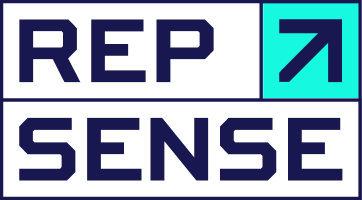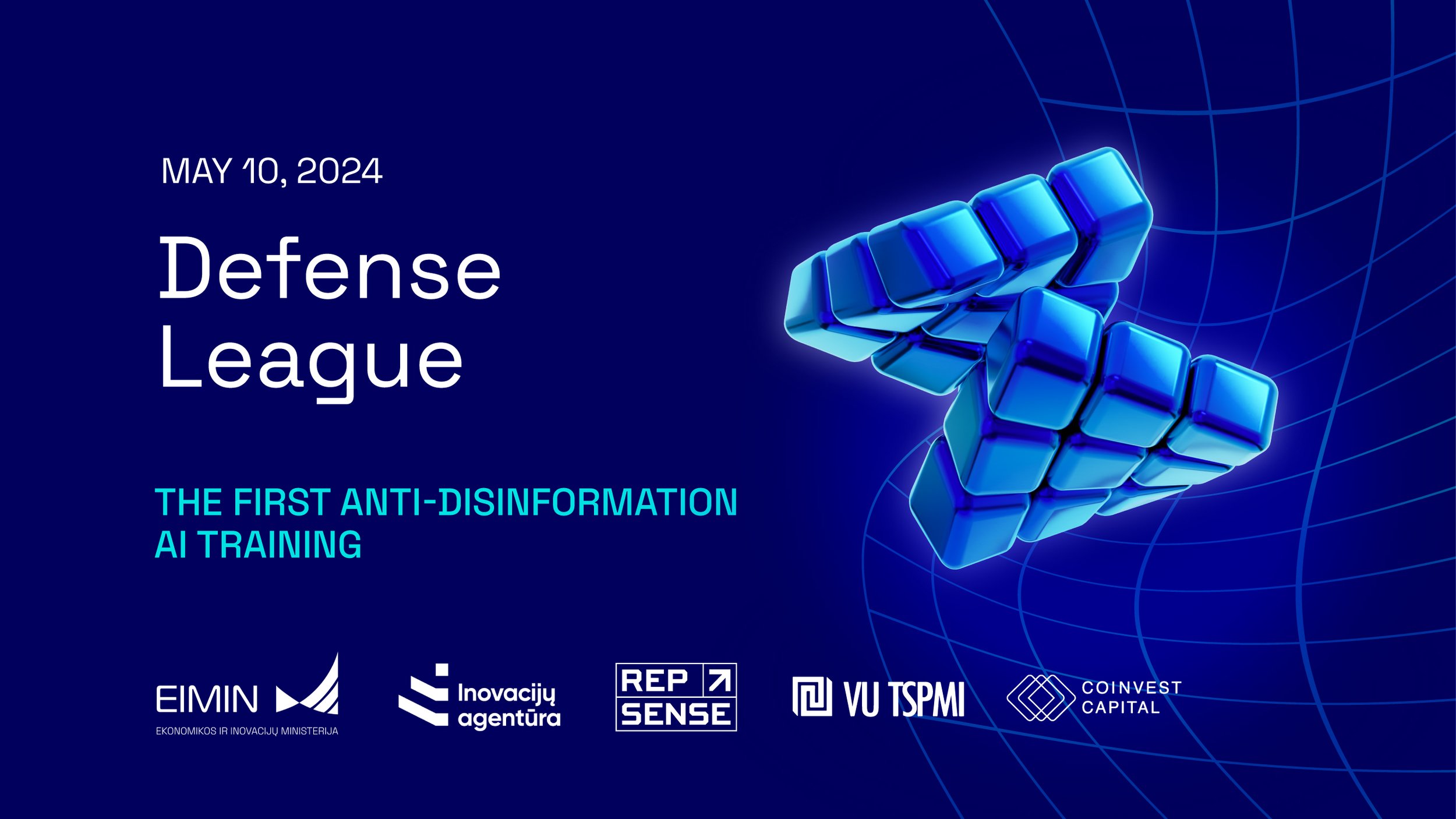Lithuania has fought off disinformation and propaganda for years now. The cooperation of our state, society, academia, and media in resisting these threats is often considered exemplary by NATO allies.
However, technological progress provides new opportunities for hostile states. A study conducted by the World Economic Forum (WEF) in January showed that more than half (53 percent) of global leaders identify artificial intelligence-assisted media and social media disinformation campaigns as one of the greatest threats to the world. It is emphasized that as early as 2024, elections worldwide could face the first attempts to use AI technology to incite public unrest.
The Ministry of Economy and Innovation of the Republic of Lithuania, VU TSPMI, Innovation agency, Repsense and Coinvest Capital are organizing "Defense League," the world's first anti-disinformation AI training exercise. During the event, experts will discuss the use of artificial intelligence for national security, while students will compete to solve challenges related to the information security situation in Lithuania and the region.
Event organizers: Ministry of Economy and Innovation of the Republic of Lithuania, Innovation agency, Repsense, VU Institute of International Relations and Political Science (VU TSPMI), and investment fund Coinvest Capital.
Date: May 10, 2024
Venue: Talent Garden (Vilniaus str. 33, 01402 Vilnius, Lithuania).
Format: The event contains two parts: an open conference and an invite-only AI training exercise for VU TSPMI students.
Conference program
14:30 – Greetings from the representatives of the Ministry of Economics and Innovation and other honorable guests.
14:40 – Hostile Narratives: Propaganda and disinformation about and in Lithuania in 2024
Presented by Artificial Intelligence strategist and Repsense cofounder Alfredas Chmieliauskas.
• Lithuania’s image online, as seen by 39 countries;
• Lithuania’s image in selected Russian periodicals and social networks, as seen from 20,000 mentions in articles and social networks;
• Narratives about Lithuania in Lithuania.
15:10 – Discussion 3i: Innovate, Invest, Integrate - how to build business and win at cognitive warfare. Global trends and opportunities for Lithuania (in English)
Moderated by Viktorija Trimbel (CoInvest Capital)
Panelists:
Dr. Shahriar Ahy (Baltic Fund)
Jeremy Hitchcock (Minim)
Sandra Golbreich (Sandbox Ventures)
Erika Kuročkina (Ministry of the Economy and Innovation of the Republic of Lithuania)
The discussion will be held in English.
The discussion is organized by the Innovation agency.
15:50 – Break
16:10 – Discussion: How to accelerate the use of new technologies in national defense? (in English)
Moderated by Margarita Seselgyte (VU TSPMI)
Panelists:
Tomas Balkus (Lithuanian Armed Forces, Strategic Communication Department)
Dr. Heiko Borchert (Defense AI Observatory)
Sönke Marahrens (Hybrid CoE)
16:50 – The final presentation of "Defense League” disinformation detection exercise. Presentation of analysis results and discussing the most interesting insights. Awarding the top teams. Farewell reception.
17:30 – The end of the event.
-
8:15 AM – Introduction.
9:00 AM – Welcome speech and the official beginning of the games.
9:10 AM – First task: Lithuania through the eyes of the world – information and disinformation.
The task is presented by AI strategist and Repsense cofounder Alfredas Chmieliauskas.
During the task, 6 student groups will gather information on how Lithuania is perceived by other countries, devise an analysis structure, and create sets of narratives.
10:00 AM – Presentation: Construction and overview of Russian and Chinese propaganda narratives.
11:00 AM – Review of the results of the first session. Discussing the insights, evaluating the initial results, and announcing the scores.
11:30 AM – Second task: Overview of Russian narratives and disinformation.
The task is presented by Dr. Nerijus Maliukevičius (Vilnius University TSPMI).
During the task, 6 student groups will create sets of narratives and prepare research results taking into account both articles and texts published on social media. As the session ends, teams send their analysis results to the evaluation committee for review.
12:30 PM – Lunch break.
1:30 PM – Discussion of the results of the second session. Presentation of the results, announcing the scores.
2:00 PM – Third task: Uneasy back – overview of Russian narratives and disinformation.
The task is presented by the National Crisis Management Center.
During the task, 6 student groups coordinate the analysis structure and present sets of narratives. After completing the task, teams submit their work for evaluation by the committee.
3:00 PM – Break, participation in the conference.
3:30 PM – Discussion of the results of the third session and preparation to present analysis insights publicly.
4:50 PM – Presentation of final results and awards. Farewell reception.
5:30 PM – End of the event.
How will artificial intelligence be used during the event?
Artificial intelligence can help combat threats to national security by detecting disinformation and propaganda narratives. It can automate and facilitate the work of responsible authorities during public crises, war, or unrest.
Event participants will use AI platform "Adler," developed by the data analytics company Repsense. It instantly processes thousands of media texts, videos, radio broadcasts, social media posts, and internet search results. The tool identifies the key stakeholders in the story, determines their connections, detects narratives, evaluates favorability, assesses the novelty of phenomena, and summarizes the insights. Information processed clearly allows for quick and accurate decision-making and prevents the spread of disinformation, panic, or violence.
During the event, teams will use AI tools, verify their narratives with information, and receive automated insights for evaluating this information. The teams' work will be monitored by professionals, including data specialists, strategic communication experts, and representatives of key institutions. The tasks will be announced on the spot, participants will face challenges and surprises, and the best teams will be evaluated and rewarded.
The time has come for every key stakeholder to come together and start using artificial intelligence for national security.


